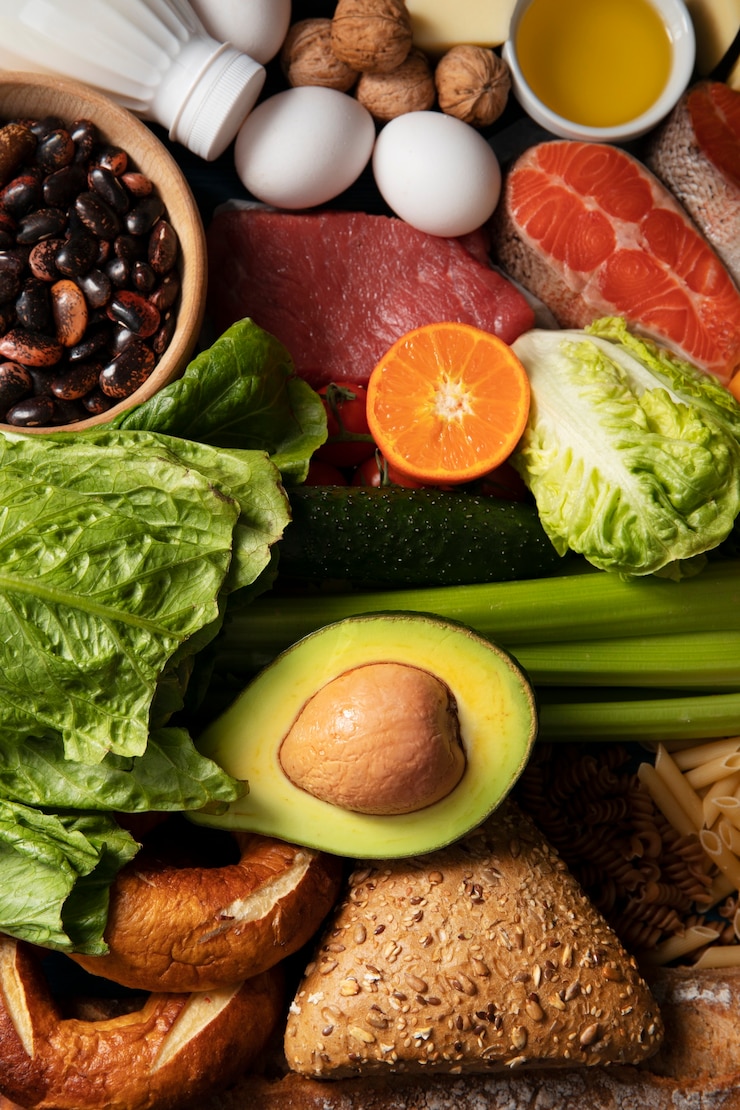
The American Heart Association recommends keeping your daily fat intake below 30% of your total calories, while the Institute of Medicine suggests staying under 35%. This may sound tricky given that many foods are packed with fat and calories, but with some mindful eating, it’s possible. In this guide, we’ll explore low-fat foods that are not only nutritious but also beneficial for your overall health. But first, let’s get clear on what a low-fat diet really means.
What is a Low-Fat Diet?
A low-fat diet involves cutting down on fats, particularly saturated fats and cholesterol, so that less than 30% of your total calories come from fat. While such diets aim to reduce the risk of health issues like heart disease and obesity, some experts suggest they might not be ideal for long-term use. Typical low-fat diets emphasize vegetables, lean meats, fruits, and whole grains. Protein-rich options like egg whites and supplements can also help you reduce fat intake. Low-fat diets are often helpful for managing weight and improving overall health.
Why Limit Your Fat Intake?
Fat is a necessary part of a healthy diet, but not all fats are created equal. Differentiating between good fats and bad fats is key to making healthier choices. Reducing fat consumption can lower calorie intake, decrease cholesterol, and might even prevent certain health conditions. For example, the National Cancer Institute links low-fat diets to reduced cancer risks. They are also commonly recommended for individuals with gallbladder-related illnesses. Below are some great low-fat food options to help you maintain a healthier lifestyle.
1. Greens
Leafy green vegetables like spinach, kale, and others are not only low in fat but are packed with essential nutrients like vitamins A and K, potassium, and calcium. They also contain compounds known to reduce inflammation and may lower the risk of heart disease, cancer, and other health issues when consumed regularly.
2. Mushrooms
Mushrooms such as white button, shiitake, and oyster varieties are naturally low in fat, delicious, and nutritious. They’re rich in B vitamins, potassium, and other health-boosting compounds. Mushrooms also contain antioxidants with anti-inflammatory benefits and are believed to improve immune function and even help fight certain types of cancer.
3. Lean Fish
Certain types of fish, including haddock, pollock, and perch, are excellent low-fat protein sources. These fish are high in essential nutrients like vitamin B12, selenium, and phosphorus, making them great for your overall health.
4. Egg Whites
Unlike whole eggs, which contain a fat-heavy yolk, egg whites are an excellent low-fat option packed with protein. If you’re watching your calorie intake, egg whites can help you cut back on cholesterol while still meeting your nutritional needs.
5. Chicken Breast
Skinless chicken breast is an excellent protein-rich choice with low-fat content. It provides vital nutrients such as vitamins B6 and niacin, along with selenium and phosphorus, making it a healthy inclusion in any diet.
6. Fruits
Fruits are naturally sweet, low in fat, and filled with fiber, vitamins, and minerals. Many fruits are packed with antioxidants that help fight harmful free radicals in the body, potentially reducing the risk of chronic diseases like heart conditions and cancer. Whether eaten fresh, cooked, or dried, fruits are a wholesome and versatile food group for a low-fat diet.
7. Sweet Potatoes
Sweet potatoes are a nutrient-rich root vegetable that’s low in fat and high in essential vitamins like A, B, and C. They also provide potassium, manganese, and beta-carotene, which helps protect cells from free radical damage and may reduce the risk of certain vision problems.
8. Garlic
Garlic is a virtually fat-free flavor enhancer with a host of health benefits. It has been used for centuries in traditional medicine, and studies show it may boost immune function, help lower blood pressure, and reduce cholesterol levels.
9. Legumes
Legumes, such as beans, lentils, and peas, are naturally cholesterol-free, contain minimal fat, and are packed with protein, fiber, and essential nutrients like magnesium, zinc, and iron. Regular consumption of legumes has been linked to better blood sugar control, lower cholesterol, and reduced risks of weight gain.
10. Whole Grains
Ancient grains like farro, spelt, and bulgur are low in fat but rich in nutrients like iron, phosphorus, and B vitamins. Their high fiber content aids digestion, and regular consumption of whole grains may help lower the risk of heart disease and stroke.
Final Thoughts
A low-fat diet can be a great choice, whether for personal preference or medical reasons. It can aid in weight management and may also be beneficial for those dealing with specific health issues like liver or gallbladder problems. The foods mentioned above are not only low in fat and calories but also rich in nutrients that promote overall well-being. Adding them to your diet can help you maintain a healthy lifestyle and feel your best every day.